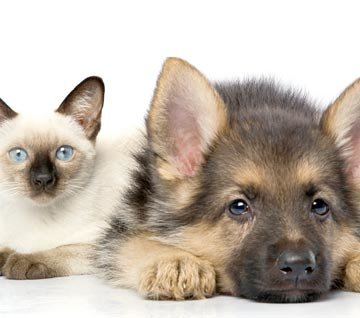
Dr. Hurd: You wrote the following in a recent Life’s a Beach column: “The death of a beloved pet is certainly among the more difficult situations I face across in my office. I try to help people correct the mistaken belief that it’s somehow wrong to grieve. Indeed, one of the most traumatic events one can experience is the loss of a child, and for many people, pets are, to some extent, their children. It would be irrational not to grieve!”
What I want to know is how you can compare the death of a child with the death of a pet. I want to know how you can even put the two things in the same sentence. How dare you!
Dr. Hurd replies:
Take a chill pill! I said no such thing. YOU said it, falsely attributed it to me, and then you angered yourself.
To say or imply that the death of a pet is no different from the death of a child would be the same as saying: Humans and animals are one and the same. They’re not, of course. Humans are conceptual beings. They have a vastly superior intellectual capacity to lesser animals. Humans cure disease, build bridges, spaceships and develop awesome technology — not our sweet little pets. Humans — good and smart ones — make the world go around, and even make the world more livable for pets.
The sad fact is that some humans use their superior conceptual faculty brilliantly and sensitively, while others abuse or waste it. The result is that some humans will lead you to prefer the intellectual inferiority of cats and dogs, while other humans will lead you to an opposite conclusion.
I am prepared to say that cats and dogs are superior to many human beings in the world. There are evil, controlling, abusive and otherwise irrational human beings, for one thing. And then there are vast numbers of human beings — a majority, I’m afraid — who wildly underutilize their potential. In all honesty, a pet has more to offer me than a human being who has little or nothing worthwhile to say. Also, because pets are intellectually inferior they cannot betray their own principles. They’re not sophisticated enough to have any. While a relationship with a rational, principled human being will surpass the relationship with a pet in its satisfaction, the fact that so many humans disappoint give pets an edge they otherwise would not have.
I’m not the only one who thinks this, which is why I encourage people who love their pets to grieve freely. The writer of this question seems to assume that grieving a pet takes away from another person who has a child (or other human loved one) to grieve. Ridiculous. Just as your love for one person does not take away from the love of another, it’s similar with grief. Your grief over the loss of a pet does not in any way detract from your grief over the loss of a human being you valued — or a stranger’s grief.
The error in this question is the zero-sum premise. The zero-sum premise is the false view that there’s only so much of a value, commodity or emotion to go around. In this case, the emotion considered in short supply is grief. The question implies, “There’s only so much grief to go around! How dare you take away grief for children by spreading it over to pets.”
First of all, it’s not mine to spread. Grief happens for reasons, not because some therapist or column writer (or reader) deems it proper in one situation and improper in another. Grief is an emotional byproduct of having valued someone or something that is now gone, or lost. If you lose something, or someone, it’s rational to grieve. It’s also rational to move on with your life, and do a whole host of other things. But it is still rational to grieve.
Although humans are intellectually superior to pets, it doesn’t follow that they’re always more valuable. As I said, a good pet offers more than either an evil human, or an intellectually dull one. Also, it’s a psychological fact that many people value their pets just as much as humans they know. Quite frankly, this sometimes even includes their children. Our society today is filled with adults who are disappointed with their grown children, often for valid reasons. Despite their best efforts, some parents watch their children grow up into people who are chronic underachievers who feel entitled to everything, and who won’t even pay their own bills. When this happens, it’s reasonable and honest for a parent to lack respect or warmth for this dysfunctional human.
Pets fill the void when high quality humans are hard to find. Pets, in turn, benefit from the best that humans have to offer. There’s no competition between love for a child and love for a pet. The love of a valuable human is elusive for many, but still the highest value. Pets cannot replace satisfying human connection, but in its absence they surely fill some of the void.
